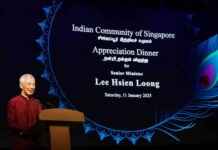Protecting Teens Online: Rethinking Social Media Bans
In this digital age, the issue of protecting teens online has become increasingly crucial. With the rise of social media platforms, concerns about the harmful effects on young minds have prompted various responses from policymakers and parents alike. One such response is the implementation of age restrictions on social media access.
The Debate on Social Media Bans
Australia made headlines last year when it passed a law prohibiting children under the age of 16 from using social media. While this move was intended to shield young users from potential dangers, the practicality and effectiveness of such a ban have been called into question. Singapore is now contemplating similar measures to safeguard its youth from the negative impacts of excessive screen time.
During a recent discussion on CNA’s weekly news podcast, hosts Steven Chia and Crispina Robert engaged in a thought-provoking conversation with experts Nikki Yeo, a Gen Z journalist from CNA TODAY, and Alvin Seng, an addictions counselor at WE CARE Community Services. The panel delved into the complexities of regulating social media access for teens and offered alternative strategies to mitigate the risks associated with online exposure.
Insights from the Experts
Alvin Seng highlighted the unpredictability of social media content, emphasizing the role of external curation in shaping users’ experiences. He underscored the challenges of self-regulation, particularly for young individuals who may lack the maturity to navigate the digital landscape responsibly. Crispina Robert echoed these sentiments, pointing out that even adults struggle to moderate their online behavior effectively.
Reflecting on her own upbringing, Nikki Yeo shared her perspective on the evolving digital landscape and its impact on childhood development. Growing up without constant access to screens, Yeo acknowledged the potential drawbacks of early exposure to social media in shaping personal interests and habits. However, she also recognized the value of online communities in fostering creativity and connectivity among adolescents.
Fostering Media Literacy and Responsible Usage
As the discussion unfolded, the panelists emphasized the importance of promoting media literacy and critical thinking skills among young users. Rather than imposing blanket bans on social media usage, the focus should be on educating teens about digital citizenship and empowering them to make informed choices online. By cultivating a generation of media-savvy individuals, society can navigate the complexities of the digital age more effectively.
In conclusion, the conversation highlighted the need for a nuanced approach to protecting teens online, moving beyond restrictive measures towards proactive education and engagement. As social media continues to shape our interactions and experiences, equipping young users with the tools to navigate this digital landscape responsibly remains paramount. Join the dialogue on Deep Dive and stay informed on the latest developments in online safety and digital well-being.


























